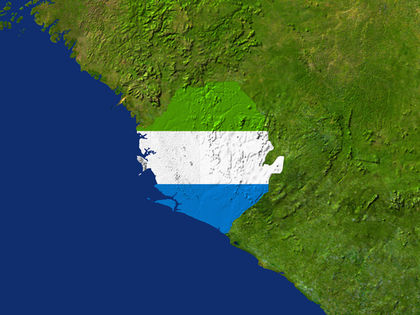Sierra Leone - Agriculture

Agriculture is the primary occupation in Sierra Leone, employing two-thirds of the labor force and accounting for 50% of GDP. Most Sierra Leoneans live on small, scattered farms, following a scheme of bush-fallow rotation, slash-and-burn field preparation, and limited use of fertilizer. Agricultural exports in 2001 amounted to nearly $7.5 million and consisted of coffee, cocoa, palm kernels, piassava, kola nuts, and ginger.
Rice, grown by 80% of farmers, is the most important subsistence crop and, along with millet in the northeast, is a food staple; 247,000 tons were produced in 1999, down from an annual average of 508,000 tons during 1989 to 1991. The Rice Research Institute, located in the Northern Province, breeds high-yielding varieties for seed. Other domestic food crops include cassava, yams, peanuts, corn, pineapples, coconuts, tomatoes, and pepper.
Coffee is grown in the eastern and southern provinces; production totaled 15,000 tons in 1999. Cocoa is grown in the Kenema and Kailahun districts of the Eastern Province and in the Pujehun District of the Southern Province, mainly on smallholdings of about 0.4–1.2 hectares (1–3 acres). In 1999, an estimated 11,000 tons of cocoa beans were produced. Palm produce is derived from stands of wild palms, mainly in the northeast and southeast; production in 1999 included 22,000 tons of palm kernels and 36,000 tons of palm oil. Although there is substantial local consumption of palm kernels, they are a major agricultural export. Piassava, a raffia palm fiber used for broom and brush bristles, is grown in the swampy areas of the extreme south. Small amounts of kola nuts were also exported, and modest crops of bananas, pineapples, and sugarcane were grown.
The 1991 invasion of rebels from Liberia in the eastern and southeastern provinces severely damaged agricultural production and exports. Whereas annual agricultural growth averaged 3.1% during 1980–1990, it was –0.1% during 1990–2000.
support and credit are not available.Govt to provide public farms.